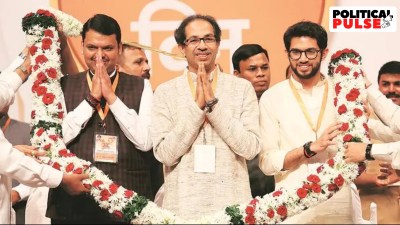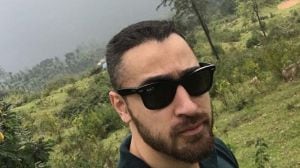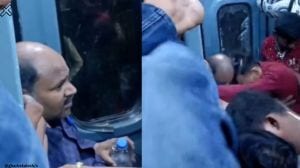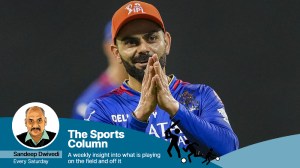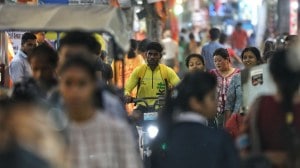- India
- International
Growing up in India with a Chinese mother hasn’t been easy, Covid makes it worse
My mother never complained about how tough it was for her to adjust in a new culture, but it wasn’t easy growing up as a child with a mixed heritage.
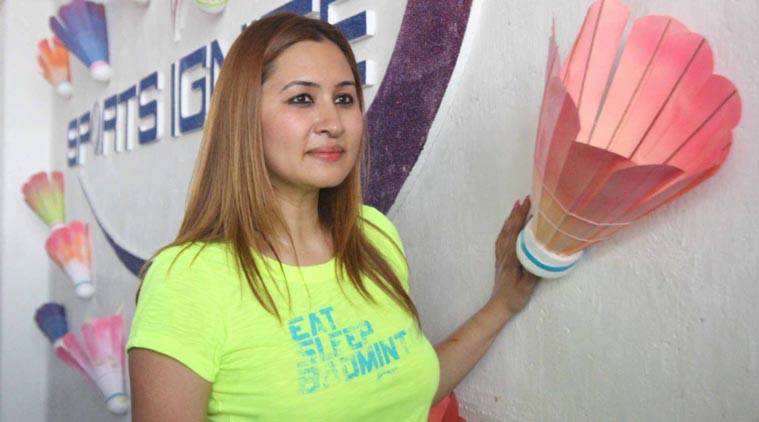 With COVID-19, the trolls have a new word to fling at me, and others from the Northeast. (File Photo/Representational)
With COVID-19, the trolls have a new word to fling at me, and others from the Northeast. (File Photo/Representational)
“China ka maal”, “half Chinese” and “chinki”, of course. I get a lot of this on Twitter when I disagree with a majority view on something. There’s a new addition: I’m a “half Corona”. I’ve developed a thick skin. I also know these are the same people who will troll me, but if we meet in person, will ask for a selfie. Still, it’s not been easy growing up as the child of a Chinese mother. Now, with COVID-19, the trolls have a new word to fling at me, and others from the Northeast.
What we don’t realise as Indians when we call someone “corona” or “Chinese virus” is that we ourselves have a large number of cases of malaria and over 2 lakh Indians die of tuberculosis each year. It is contagious and high numbers of malaria are also down to our country’s poor hygiene standards. Now, imagine if an Indian walking past in a foreign country gets called “malaria” or “TB carrier”.
My mother never complained about how tough it was for her to adjust in a new culture, but it wasn’t easy growing up as a child with a mixed heritage. Any difference of opinion in the extended family would lead to me being told patronisingly that it wasn’t my fault — it was just something I was taught by my “Chinese mother”.
People don’t realise but I have abhorred attention since I was a kid because of all the staring back then. When I was younger, I thought it was only because I looked different — I was tall and fair, with a slightly different face. But I never understood the racism angle to it. I used to explain patiently to the kids who taunted me that I simply had a bigger face so my eyes looked small. In my twenties, though, the real import of all this name-calling hit me. I realised how none of it was acceptable. I saw our people from the Northeast being discriminated against and facing violence, even in big cities.
I want them to know they are as Indian as anyone else. I understand it’s difficult, but if you get harassed, don’t think twice before approaching the judiciary and give courage to others. The more people complain, the more difficult it will get to ignore this harassment.

Chinese food habits are under scrutiny right now. But they are as “weird” as, say, exotic insects being served in the streets in Thailand or something else in Japan, or some might even say, in India. I probably would never venture into the wet markets in China, and when we visited China, my parents didn’t either. But my father was very excited about trying out different kinds of meat. And why not? Who are we to question their culture and eating habits when we don’t like being questioned about ours? There’s a way to convey legitimate concerns, and it isn’t by retaliating against an entire culture or blaming a whole race.
There are several misconceptions about the Chinese in India: That they don’t have any freedom, and none of them are happy because it’s a dictatorial system. However, I don’t know how much freedom of speech we have in our country — look at all the trolling and the IT cells. I see both my uncles, and a grandmother in her 90s, who are all perfectly happy there. My grandmother lives alone and refuses to move in with us in India, despite us having all the typically required Indian comforts of cooks and house helps.
My great grandfather came to India, studied with Tagore and was named “Shantidoot” by Mahatma Gandhi for carrying the message of peace amidst distrust. He was the chief editor of a Singapore-Chinese newspaper and wanted to translate Gandhi’s autobiography. That’s how my mother came to India to help him. He died in Wardha and his grave is at Kasturba Medical hospital.
There are other things about the Chinese that we should, ideally, be using as markers of comparison. I first travelled to Guangzhou in 2002, and saw why that country is on the top of the medal charts in the Olympics. They have two-hour lunch breaks, and you see people in formal office clothes playing ping-pong at tables set up on the streets. They ensure that their corporate employees too get enough physical activity. At recreational stadiums, anyone between age three and 90 will be seen playing a sport, and it’ll be a packed house.
I’m not as hardworking as my mother and I’ve only inherited her skin and Chinese food habits of eating bland. But the Chinese are the most hardworking people I know. My mother works from 8 am to 6 pm running a successful consultancy for pharmaceutical companies. She had to adjust to a South Indian family who never completely accepted her looks. In China, she was used to good food. But she was denied the comfort food she craved when she was pregnant with me. Not everyone was happy I wasn’t born a boy. But my parents stood by each other, so I’m immensely proud of what they’ve done for us.
Because of my heritage, I’ll never generalise anything about Indians or the Chinese. I treat everyone equally and don’t see religious or caste distinctions. I have broader perspectives. Because I am a public figure, you can question my game, but never my patriotism. I’ve stood up more than most of my trolls ever have for the national anthem and those of my opponents.
I know the importance of respecting others and of humanity, something we need as we, Indians, battle COVID-19.
The writer is a World Championship and Commonwealth Games medallist in badminton
EXPRESS OPINION
More Explained
Apr 20: Latest News
- 01
- 02
- 03
- 04
- 05












